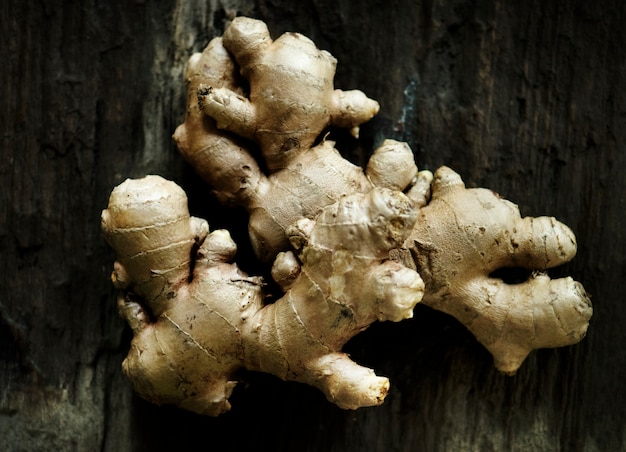
Use of ginger in ancient times.
Even before historical records, ginger was cultivated and used as a spice and medicine in India and China. The early medical texts of both countries detail the medicinal use of this spice in both fresh and dried form.
In the fourth century BC Chinese texts, ginger is mentioned as a medicine for the treatment of stomach problems, nausea, diarrhea, cholera, toothache, bleeding, and arthritis.
Chinese herbalists also use this herb in the treatment of all respiratory diseases including cold and cough. In the fifth century, Chinese sailors used the vitamin C elements present in ginger to treat scurvy in long sea voyages.
Ginger is considered one of the most important herbs in Ayurvedic texts of India. Even he himself has been described as a full treasure of medicines.
Ayurvedic doctors recommend taking it as a powerful digestive as it stimulates the digestive fire and increases appetite. Its nutrients are easily accessible to all parts of the body.
In Ayurveda, ginger is also used in the treatment of joint pain, nausea and discomfort caused by motion.
Scientific name of ginger: Xinjiber officinale
Sanskrit name of Ginger: Singber
Ginger's English name: Ginger
Ginger is pungent in taste. Ginger digestive is a wonderful medicine to relieve irritability. It is analgesic and delicious and destroys air and phlegm.
Ginger, found under the ground, is a bushy, yellow root of two and a half to three feet high. Ginger is dried in the sun for long to remain useful.
Some places are dipped in milk and dried and made to dry. Sound is hotter than ginger. Oil is extracted from a fountain. If you want to preserve ginger for a long time, it can also be pressed and kept in wet soil.
Ginger is used worldwide as a spice and medicine. Ginger has proved to be very effective as a medicine, hence it is called 'Mahayashadhi'.
Ingredients in 10 grams of fresh ginger juice
Water - 60.8% Fats - 0.4%
Carbohydrates - 12.3% Calcium - 2mg.
Fibre - 2.4% Phosphorus - 0.80 mg
Proteins - 2.3% iron - 0.28 mg.
Minerals - 1.2% Vitamin C - 0.4mg.
अदरक के फायदे | adrak ke fayde in hindi
पाचन विकार के लिए | Digestive Disorders
सांस विकार के लिए | Respiratory disorder
स्त्री रोग के लिए | Gynecological problems
वेदना शामक | Pain reliever
Ginger capable of destroying cancer cells
In modern research, ginger is seen as a beneficial drug in various types of cancer and has shown some promising results.A study by the University of Michigan Comprehensive Cancer Center found that ginger not only destroyed ovary cancer cells, but also prevented them from developing immunity to chemotherapy, which is a common problem in ovary cancer.
In this study, researchers applied a paste of ginger powder and water to ovary cancer cells. Every test found that the cancer cells were destroyed when exposed to the ginger mixture. Each cell either committed suicide, called apoptosis, or they attacked each other, known as autophagy.
Ginger has also been found very beneficial in the treatment of breast cancer, prostate cancer and colon cancer.
Research published in the Journal of Biomedicine and Biotechnology revealed that ginger plant chemicals inhibited the proliferation of breast cancer cells without impacting on healthy breast cells. This property is very important because it does not happen in traditional methods. Although many tumors are cured by chemotherapy, breast cancer cells are more difficult to destroy. They often survive and develop immunity to treatment.
Other advantages of using ginger are that it is easy to be given in capsule form, has few side effects and is a cheaper alternative to traditional medicines.
Modern science certifies that ginger can also reduce inflammation in the colon, which helps prevent colon cancer. In a University of Michigan study, researchers gave a group of 30 patients two grams of ginger root supplements or placebo in 28 days. After 28 days, the researchers found that the patients who had consumed ginger root found a significant reduction in signs of colon inflammation. This may make it an effective natural prevention method for people with colon cancer risk.
Many other cancers, such as anal cancer, liver cancer, lung cancer, melanoma and pancreas cancer, have also been studied on the ability of ginger ingredients. It is interesting that an anti-cancer drug is made from beta-almen ginger.



0 Comments